_preview.jpg) Once Gone (a Riley Paige Mystery--Book #1)
Once Gone (a Riley Paige Mystery--Book #1)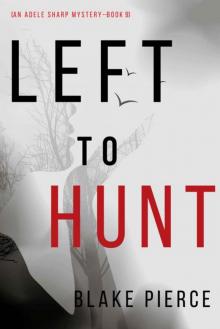 Left to Hunt (An Adele Sharp Mystery—Book Nine)
Left to Hunt (An Adele Sharp Mystery—Book Nine)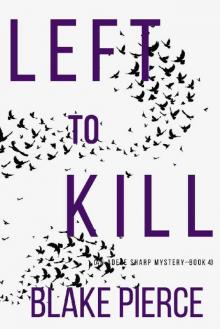 Left to Kill (An Adele Sharp Mystery—Book Four)
Left to Kill (An Adele Sharp Mystery—Book Four)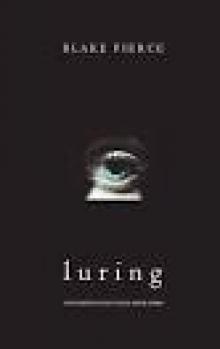 LURING
LURING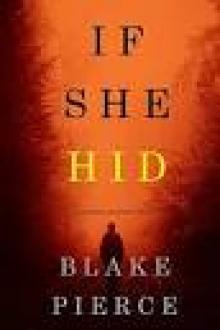 If She Hid
If She Hid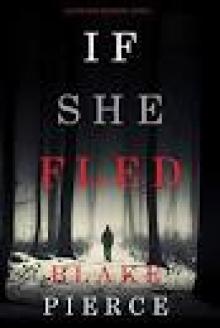 If She Fled
If She Fled Already Gone (A Laura Frost FBI Suspense Thriller—Book 1)
Already Gone (A Laura Frost FBI Suspense Thriller—Book 1) Vengeance in Vienna
Vengeance in Vienna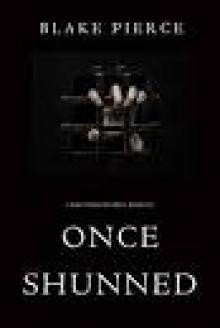 Once Shunned
Once Shunned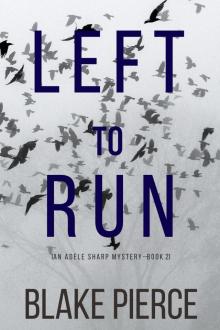 Left To Run
Left To Run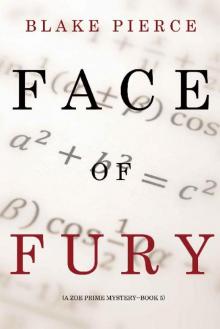 Face of Fury (A Zoe Prime Mystery--Book 5)
Face of Fury (A Zoe Prime Mystery--Book 5)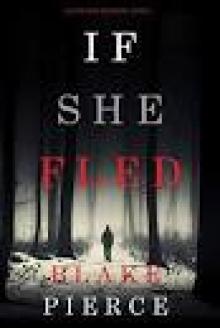 Blake Pierce - Kate Wise - 5 - If She Fled
Blake Pierce - Kate Wise - 5 - If She Fled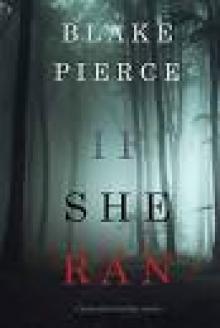 IF SHE RAN
IF SHE RAN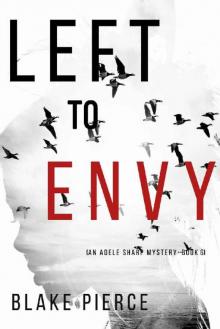 Left to Envy (An Adele Sharp Mystery—Book Six)
Left to Envy (An Adele Sharp Mystery—Book Six) Silent Neighbor
Silent Neighbor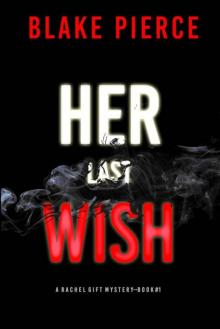 Her Last Wish (A Rachel Gift FBI Suspense Thriller—Book 1)
Her Last Wish (A Rachel Gift FBI Suspense Thriller—Book 1)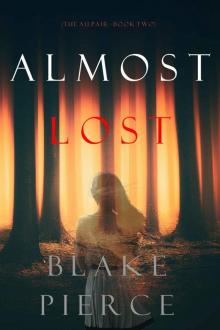 Almost Lost
Almost Lost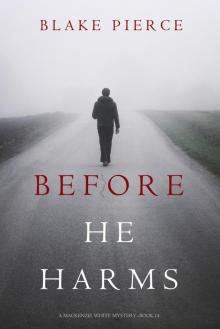 Before He Harms
Before He Harms Murder (and Baklava) (A European Voyage Cozy Mystery—Book 1)
Murder (and Baklava) (A European Voyage Cozy Mystery—Book 1)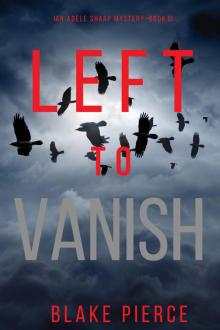 Left to Vanish (An Adele Sharp Mystery—Book Eight)
Left to Vanish (An Adele Sharp Mystery—Book Eight)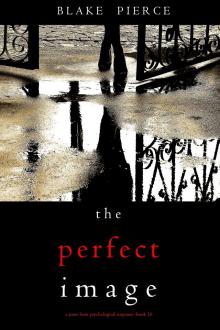 THE PERFECT IMAGE
THE PERFECT IMAGE The Perfect Affair (A Jessie Hunt Psychological Suspense Thriller—Book Seven)
The Perfect Affair (A Jessie Hunt Psychological Suspense Thriller—Book Seven)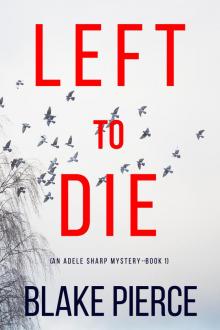 Left To Die
Left To Die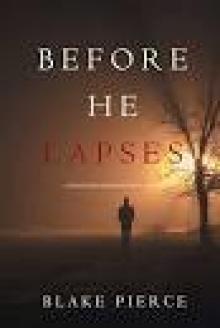 BEFORE HE LAPSES
BEFORE HE LAPSES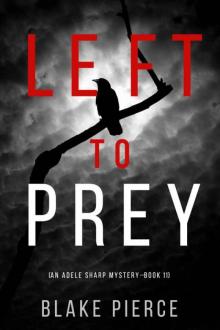 Left to Prey (An Adele Sharp Mystery—Book Eleven)
Left to Prey (An Adele Sharp Mystery—Book Eleven) The Perfect Neighbor (A Jessie Hunt Psychological Suspense Thriller—Book Nine)
The Perfect Neighbor (A Jessie Hunt Psychological Suspense Thriller—Book Nine)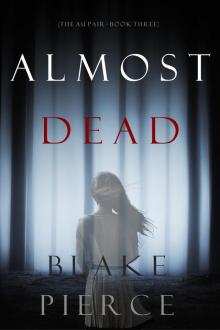 Almost Dead
Almost Dead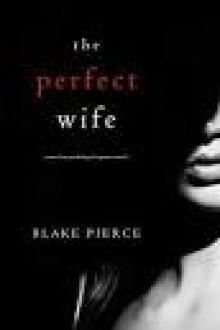 The Perfect Wife
The Perfect Wife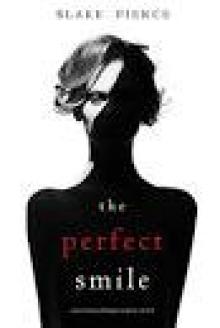 The Perfect Smile
The Perfect Smile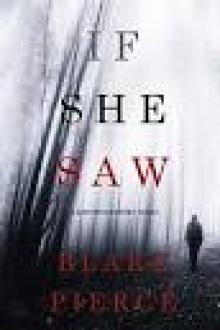 If She Saw
If She Saw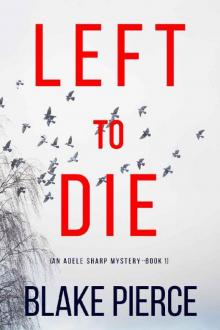 Left To Die (An Adele Sharp Mystery—Book One)
Left To Die (An Adele Sharp Mystery—Book One)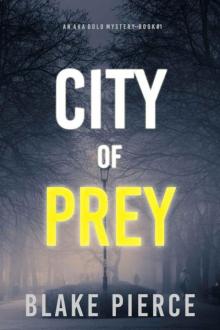 City of Prey: An Ava Gold Mystery (Book 1)
City of Prey: An Ava Gold Mystery (Book 1)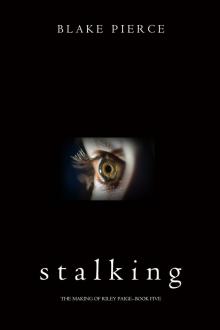 Stalking
Stalking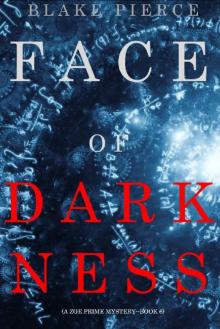 Face of Darkness (A Zoe Prime Mystery—Book 6)
Face of Darkness (A Zoe Prime Mystery—Book 6)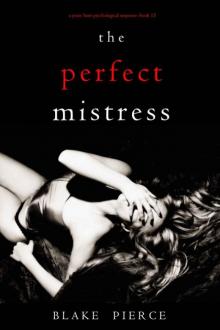 The Perfect Mistress (A Jessie Hunt Psychological Suspense Thriller—Book Fifteen)
The Perfect Mistress (A Jessie Hunt Psychological Suspense Thriller—Book Fifteen)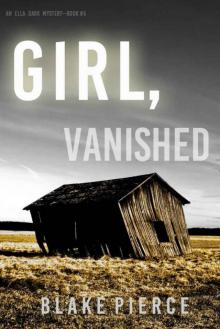 Girl, Vanished (An Ella Dark FBI Suspense Thriller—Book 5)
Girl, Vanished (An Ella Dark FBI Suspense Thriller—Book 5) The Perfect Block
The Perfect Block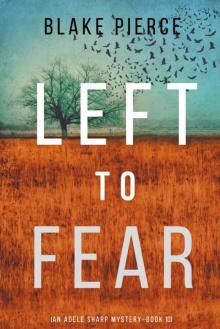 Left to Fear (An Adele Sharp Mystery—Book Ten)
Left to Fear (An Adele Sharp Mystery—Book Ten)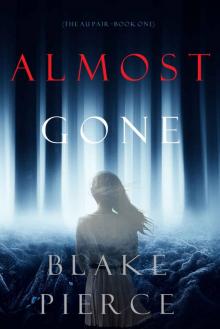 Almost Gone (The Au Pair—Book One)
Almost Gone (The Au Pair—Book One) The Perfect Facade (A Jessie Hunt Psychological Suspense Thriller—Book Twelve)
The Perfect Facade (A Jessie Hunt Psychological Suspense Thriller—Book Twelve) The Perfect Affair
The Perfect Affair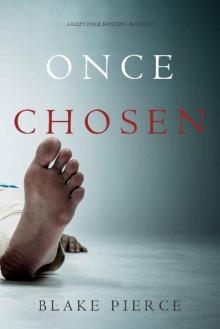 Once Chosen (A Riley Paige Mystery—Book 17)
Once Chosen (A Riley Paige Mystery—Book 17)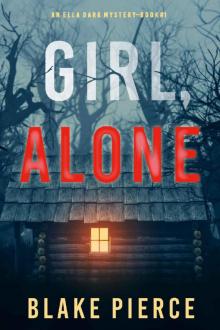 Girl, Alone (An Ella Dark FBI Suspense Thriller—Book 1)
Girl, Alone (An Ella Dark FBI Suspense Thriller—Book 1)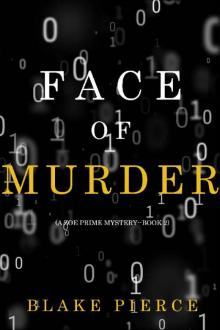 Face of Murder (A Zoe Prime Mystery—Book 2)
Face of Murder (A Zoe Prime Mystery—Book 2)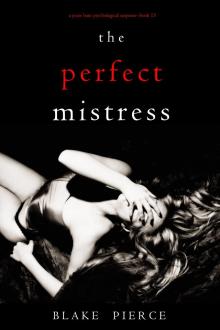 The Perfect Mistress
The Perfect Mistress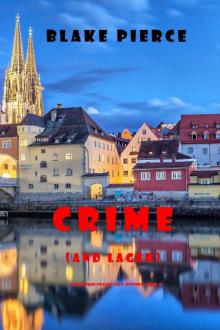 Crime (and Lager) (A European Voyage Cozy Mystery—Book 3)
Crime (and Lager) (A European Voyage Cozy Mystery—Book 3)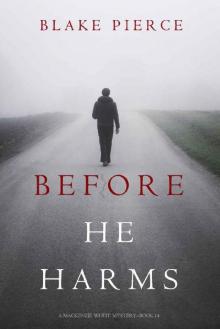 Before He Harms (A Mackenzie White Mystery—Book 14)
Before He Harms (A Mackenzie White Mystery—Book 14)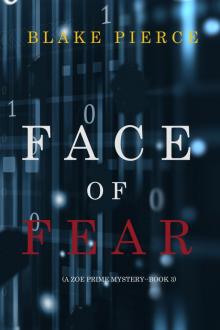 Face of Fear
Face of Fear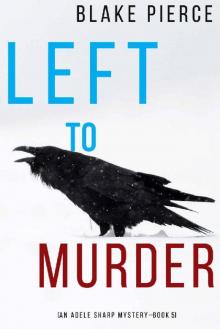 Left to Murder (An Adele Sharp Mystery—Book Five)
Left to Murder (An Adele Sharp Mystery—Book Five)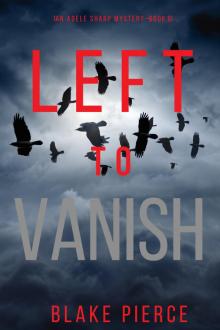 Left to Vanish
Left to Vanish The Perfect Secret (A Jessie Hunt Psychological Suspense Thriller—Book Eleven)
The Perfect Secret (A Jessie Hunt Psychological Suspense Thriller—Book Eleven) The Perfect Deceit (A Jessie Hunt Psychological Suspense Thriller—Book Fourteen)
The Perfect Deceit (A Jessie Hunt Psychological Suspense Thriller—Book Fourteen)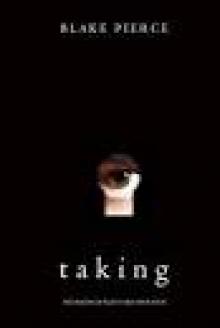 Blake Pierce - The Making of Riley Paige - 4 - Taking
Blake Pierce - The Making of Riley Paige - 4 - Taking Death (and Apple Strudel) (A European Voyage Cozy Mystery—Book 2)
Death (and Apple Strudel) (A European Voyage Cozy Mystery—Book 2) THE PERFECT HOUSE
THE PERFECT HOUSE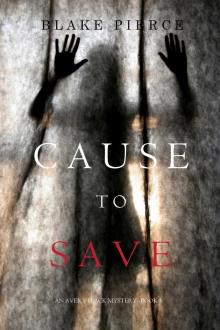 Cause to Save
Cause to Save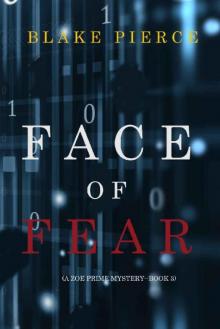 Face of Fear (A Zoe Prime Mystery—Book 3)
Face of Fear (A Zoe Prime Mystery—Book 3)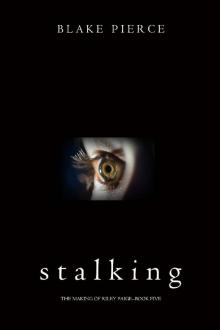 Stalking (The Making of Riley Paige—Book 5)
Stalking (The Making of Riley Paige—Book 5)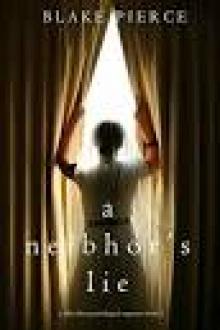 A Neighbor's Lie
A Neighbor's Lie The Perfect Neighbor
The Perfect Neighbor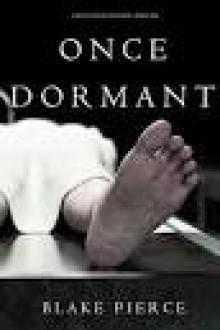 Once Dormant
Once Dormant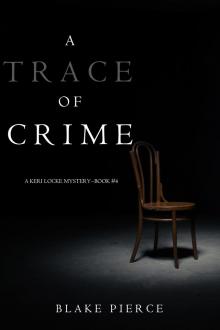 A Trace of Crime
A Trace of Crime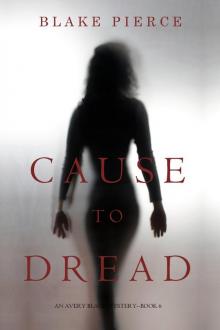 CAUSE TO DREAD
CAUSE TO DREAD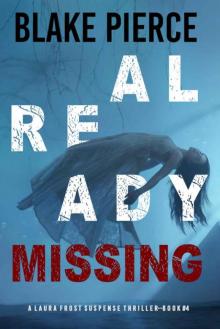 Already Missing (A Laura Frost FBI Suspense Thriller—Book 4)
Already Missing (A Laura Frost FBI Suspense Thriller—Book 4) Waiting
Waiting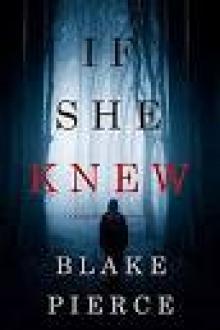 If She Knew
If She Knew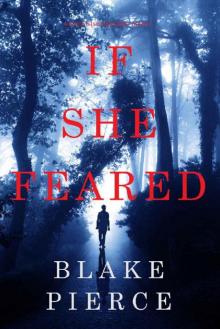 If She Feared (A Kate Wise Mystery—Book 6)
If She Feared (A Kate Wise Mystery—Book 6)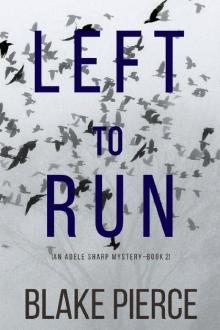 Left To Run (An Adele Sharp Mystery—Book Two)
Left To Run (An Adele Sharp Mystery—Book Two)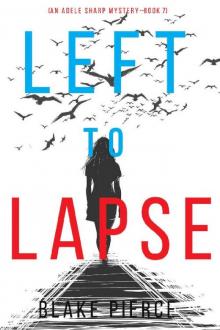 Left to Lapse (An Adele Sharp Mystery—Book Seven)
Left to Lapse (An Adele Sharp Mystery—Book Seven)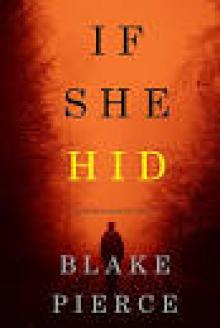 If She Hid (A Kate Wise Mystery—Book 4)
If She Hid (A Kate Wise Mystery—Book 4) The Perfect Alibi (A Jessie Hunt Psychological Suspense Thriller—Book Eight)
The Perfect Alibi (A Jessie Hunt Psychological Suspense Thriller—Book Eight)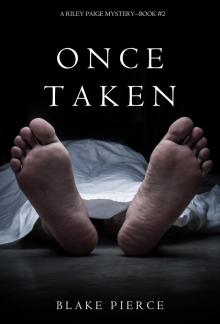 Once Taken
Once Taken Before He Envies
Before He Envies Before He Sins
Before He Sins Mackenzie White 07-Before He Sins
Mackenzie White 07-Before He Sins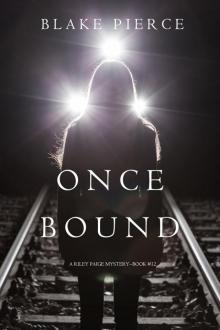 ONCE BOUND
ONCE BOUND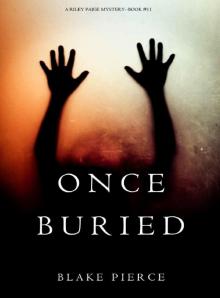 Once Buried
Once Buried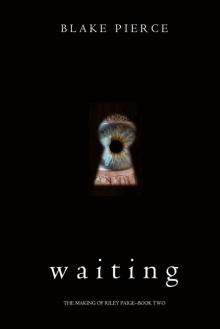 Waiting (The Making of Riley Paige—Book 2)
Waiting (The Making of Riley Paige—Book 2)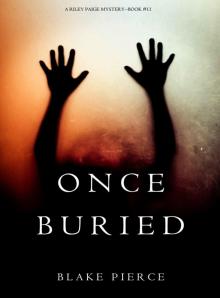 Riley Paige 11-Once Buried
Riley Paige 11-Once Buried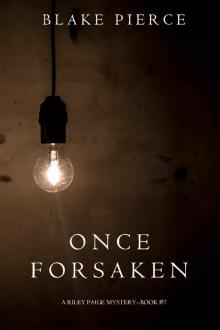 Once Forsaken (A Riley Paige Mystery—Book 7)
Once Forsaken (A Riley Paige Mystery—Book 7)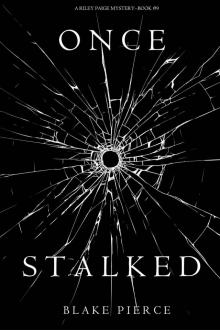 Once Stalked (A Riley Paige Mystery—Book 9)
Once Stalked (A Riley Paige Mystery—Book 9)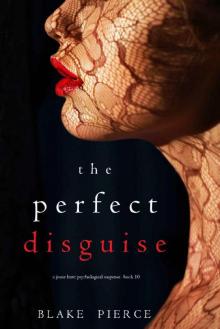 The Perfect Disguise (A Jessie Hunt Psychological Suspense Thriller—Book Ten)
The Perfect Disguise (A Jessie Hunt Psychological Suspense Thriller—Book Ten)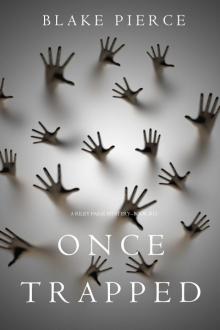 ONCE TRAPPED
ONCE TRAPPED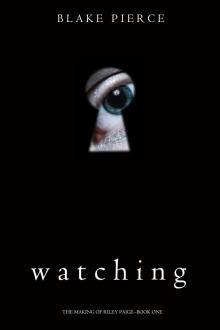 Watching
Watching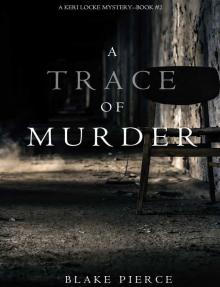 Keri Locke 02-A Trace of Muder
Keri Locke 02-A Trace of Muder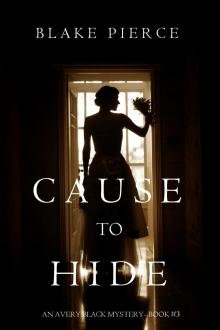 Cause to Hide
Cause to Hide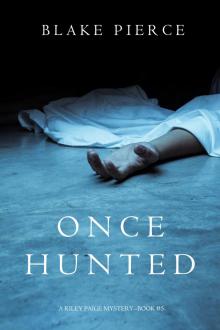 Once Hunted
Once Hunted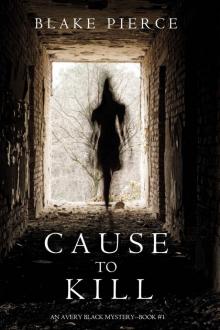 Cause to Kill (An Avery Black Mystery—Book 1)
Cause to Kill (An Avery Black Mystery—Book 1)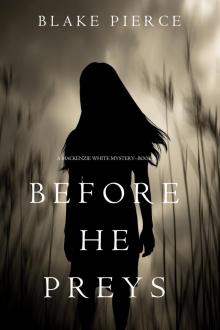 Before He Preys
Before He Preys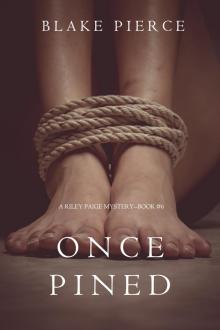 Once Pined
Once Pined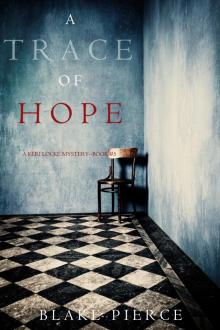 A Trace of Hope
A Trace of Hope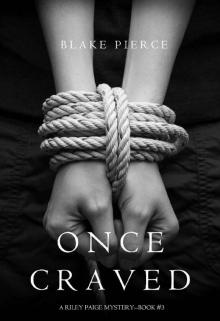 Once Craved (a Riley Paige Mystery--Book #3)
Once Craved (a Riley Paige Mystery--Book #3)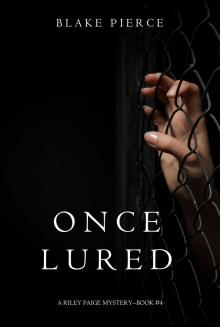 Once Lured
Once Lured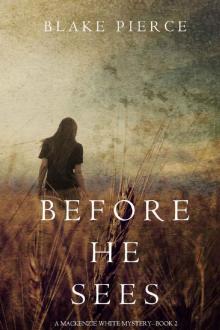 Before He Sees (A Mackenzie White Mystery—Book 2)
Before He Sees (A Mackenzie White Mystery—Book 2)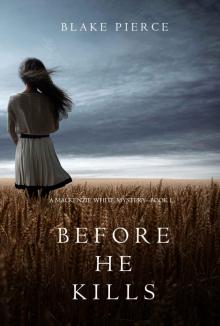 Before he Kills (A Mackenzie White Mystery—Book 1)
Before he Kills (A Mackenzie White Mystery—Book 1)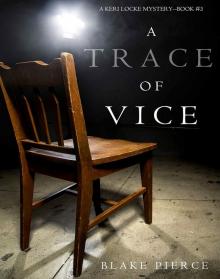 Keri Locke 03-A Trace of Vice
Keri Locke 03-A Trace of Vice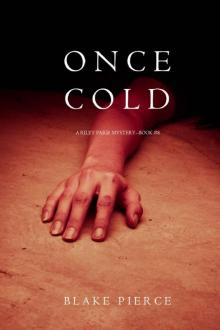 Once Cold
Once Cold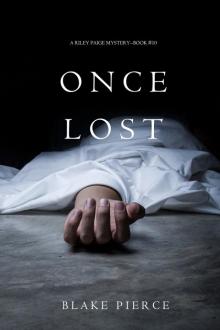 ONCE LOST
ONCE LOST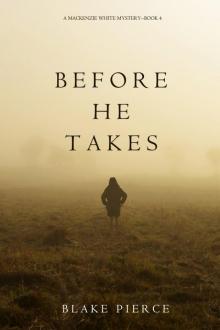 Before He Takes
Before He Takes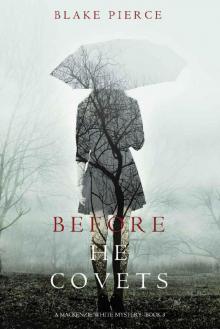 Before He Covets (A Mackenzie White Mystery—Book 3)
Before He Covets (A Mackenzie White Mystery—Book 3)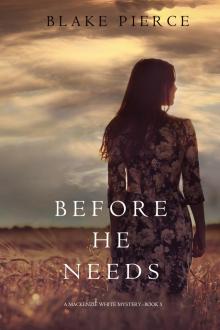 BEFORE HE NEEDS
BEFORE HE NEEDS